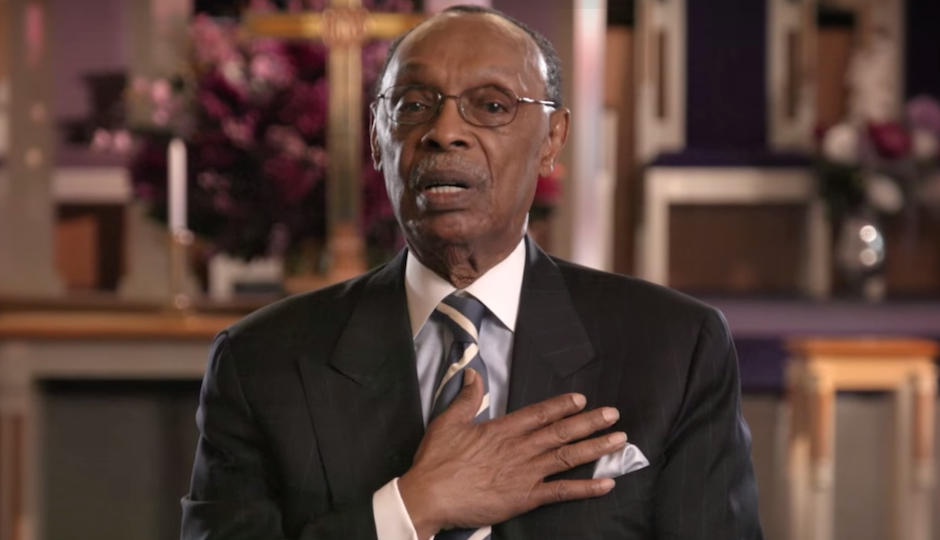Kudos to City Council for Standing Up to the Powerful Soda Lobby

Rev. James Hall Jr. | Photo via Philadelphians for a Fair Future
(Editor’s note: This is an opinion column from guest writer Rev. James Hall Jr. Hall is the pastor of Triumph Baptist Church in Germantown.)
Philadelphia City Council said yes to historic, heroic legislation last week. Three- and four-year-olds who have been on wait lists will now have access to quality pre-K. Children who go to school too hungry or traumatized by neighborhood violence to learn will now have access to resources right in their community school. Neighborhood libraries, rec centers and parks that have long suffered from neglect will now be rebuilt. However, many Philadelphians have not heard about these programs that will be supported by the soda tax because the same soda industry lobbyists who have been lying to residents for months with claims of “grocery taxes” have only ramped up their deceitful tactics in recent days.
The truth is really very simple. Over the next five years, the proposed soda tax funds a major expansion of pre-K and 25 new community schools, and helps pay for $300 million to rebuild parks, rec centers and libraries, as Mayor Jim Kenney has always said.
The reality is that tax will fund the largest educational and neighborhood investment this city has seen in decades. Seventy-five percent of our children qualify for state or federal assistance for pre-K, and yet thousands sit on wait lists because the city can’t help them. Over the next five years, we will expand access to 6,500 children annually who currently have no access to quality pre-K, and invest in neighborhood pre-K providers, most of whom are female, minority head of households.
Investing in parks, rec centers and libraries will also reduce neighborhood crime and keep our children safe and active after school and in the summer months. The city’s Parks and Recreation Department is the largest provider of after-school programming, a critical service given that nearly 20 percent of all juvenile crimes are committed between 3 p.m. and 7 p.m. Improving our parks can also reduce overall crime. When the city and the Fairmount Park Conservancy invested $5 million in Hunting Park, crime went down 89 percent within a half-mile radius of the park over the next three years. Burglaries and thefts in one Philadelphia district dropped from 40 crimes each month to just four after police helped neighborhood volunteers clean up vacant lots and plant gardens.
Community schools have also proven to uplift the entire neighborhood and increase graduation rates. By offering services like job training for parents, English as a Second Language classes, food banks, health clinics and more, the school becomes a neighborhood center, increasing parental engagement and community investment in the success of the school. The results speak for themselves. In one of the most high-poverty areas of Los Angeles, there is a community high school where 99 percent of graduates go to college. The city of Cincinnati was able to shrink its racial and socioeconomic achievement gap from 14.5 percent to 4.5 percent with the help of community schools. In Texas, two schools located in Austin’s most high-poverty neighborhood went from being on the brink of closure to becoming two of the highest-performing schools in their city.
Since the soda tax was first proposed in March, the soda industry spent more than $4 million on misleading, false ads, and put pressure on Council members in a host of other ways. And yet, City Council stood up to the industry and their tactics when it took a preliminary vote last week. We applaud the efforts of City Council in working with Mayor Kenney to move these programs forward.
Now it’s time for Philadelphians to do the same. Don’t be misled by the soda industry. Call your Council member, thank them for their votes, and ask them to vote again in support of these tremendous investments in our education and in our neighborhoods on Thursday.